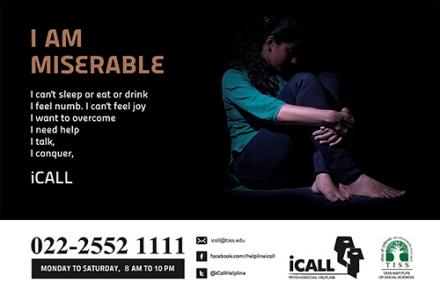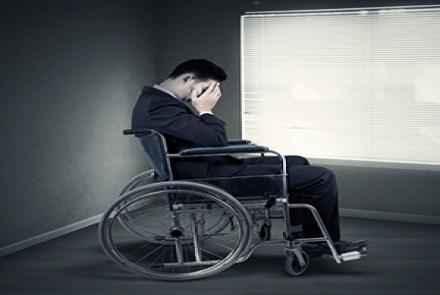
“My anxieties have anxieties,” said Charlie Brown echoing many of us. Stress is a part of life, but why and how do some deal with it better than others? Savita Narayan breaks it down with practical tips for fortifying your inner strength.
“If the problem can be solved why worry? If the problem cannot be solved, worrying will do you no good.” Shantideva, 8th century Buddhist teacher
“Stress comes from the way you relate to events or situations.” ― Chris Prentiss, Zen and the Art of Happiness
Stress is defined as a reaction to an event. As we go through life, change and potentially stressful situations are a given. In the normal course everybody faces life situations that could cause stress - short-term events such as the non-delivery of a parcel by the courier or long- term situations such as a new job, a promotion (so a new environment), a new marriage, a new baby, a layoff at work, death of loved ones or divorce.
Ongoing stress over a long period needs to be managed since it has an unhealthy impact on the body. Stress can result in irritability, tiredness and inability to concentrate.
Each event in daily life could become an occasion for us to become anxious and stressed - if we let it. Although change may or may not be anticipated and welcomed, you may not be able to avoid it. What can be managed by us, however, is our reaction to change.
We naturally react to every event in our lives. However, the manner in which we react and its subsequent effect on our bodies determines how much stress we experience. A positive, optimistic attitude may not result in a similar experience of stress from the event as a negative, pessimistic attitude. Since our attitudes are under our control, we can choose how we view the experience. Clearly the onus of managing stress is with the person himself since the causative factors, external to him, cannot be.
Hans Selye, the pioneering endocrinologist, says about stress, “It’s not stress that kills us, it’s our reaction to it. Adopting the right attitude can convert a negative stress into a positive one.”
Although the ability to face stress is a factor of personality and attitude, effectively coping with stress can be learnt.
Understanding stress
- Stress is not equal to all. Each of us has varying personalities and different ways of reacting, so something that is stressful for one may not be so for another.
- A little stress is necessary to live a productive and fulfilled life. Life without the essential stress to make us competitive and hard working will be very placid. It is important to emphasise that stress should be managed so that it does not become life- threatening.
- Stress can be managed with simple methods such as time management and setting priorities such that we have a grasp on how to achieve our tasks within a reasonable time.
- No universal techniques for stress management exist since they are best customised for every unique individual.
- All episodes of ill-health due to stress need to be treated, not just the major ones. Seemingly minor illnesses such as a headache or stomach cramps are not to be dismissed without examination since they may be indications of a deeper problem that needs treatment.
- The absence of symptoms does not mean no stress. More awareness of stress can only lead to better management of one’s physical and psychological needs.
Stress management techniques
Joan Borysenko PhD, a leading expert on stress, spirituality, and the mind/body connection says that breathing, like in Yoga, is an effective stress reliever. “Breathing is a unique physiological process that happens automatically, yet you can easily shift it with your conscious will. If you’re stressed-out, your breath reflects your mental state, coming fast and shallow, choppy and irregular. You may even unwittingly hold it for long periods of time. Stress breathing in turn stresses your body, causing it to release hormones that make it harder to concentrate and more difficult to remember things. Studies show that frequent stress breathing raises heart rate and blood pressure, triggers anxiety, and even changes blood chemistry in a way that makes your platelets stickier, increasing the risk of heart disease and stroke.”
Breathing correctly is important for stress management and relaxation and can be learnt.
Apart from effective breathing technique, some other factors also help reduce stress effectively:
- exercise
- cardiovascular conditioning and dietary control
- healthy inter-personal relationships and
- a strong social network with a wide variety of people.
In the work environment too, strategies for workload management can lead to effective stress reduction. Some of these are time scheduling, delegation of work, prioritising tasks so that work that is important, but not urgent, gets done despite work pressures.
Resilience
“The greatest glory in living lies
not in never falling,
but in rising every time we fall.”
― Nelson Mandela
The American Psychological Association defines resilience as the process of adapting well in the face of adversity, trauma, tragedy, threats or even significant sources of stress - such as family relationship problems, serious health problems or workplace or financial stressors.
People with less resilience become easily overwhelmed by adverse events. They are unable to snap out of thinking of the situation constantly and may try to cope by resorting to unhealthy behaviours such as overeating, substance abuse, anger and social withdrawal. They may take longer to recover from setbacks.
A resilient person may not just survive adversity but also thrive subsequently, using to her advantage her life experiences that may have led to emotional distress at the time. This does not mean that a resilient person experiences no stress. Far from it. The difference is that resilient people are able to harness their innate strengths and talents to recover from a range of issues - minor ones that dog everyday life such as the non-arrival of household help to major life-threatening occurrences such as a tsunami arriving during a family vacation. Although buffeted by life’s knocks, they are able to hold steady and emerge from a crisis without caving in or allowing it to hold them back.
Resilience is considered to be a combination of behaviours, actions and thoughts. It is not a trait based on parameters such as race, gender or age. Also, it can be learnt so that anybody can train themselves to be more resilient.
Developing resilience
Some people naturally exhibit resilience in the face of adversity but for many others it is a learned trait. Developing resilience is a continuous process rather than an inborn attribute. Having an inherent positive attitude or learning to develop one is a huge step towards managing stress and exhibiting resilience.
There are some practical strategies to developing resilience which is, after all, a learned behaviour and can be developed by anybody.
The American Psychological Institute makes these points regarding how to develop resilience:
- Be sociable and build good relationships. Developing and maintaining good relations within the family and outside it in a larger friends’ circle is considered the most important factor for resilience.
- Don’t see adverse situations as unsolvable problems. Keep events in perspective and try to find solutions. We can’t control events. We can only control how we respond to them.
- Accept change and do not fight it. Go with the flow and adapt to changed circumstances with a positive attitude.
- Take regular, positive small steps towards achieving your goals. Have an achievable goal to aim at, only then will you get somewhere.
- Be decisive about confronting issues. Merely wishing they wouldn’t arise will not make them go away.
- Constantly improve yourself to increase your self worth and confidence. Getting to know yourself and your capabilities is a reward in itself.
- Learn to trust your instincts to solve your problems better. Have confidence in yourself and develop a healthy sense of self. This increased sense of self worth will also increase your resilience. Exercise regularly.
- Develop an optimistic outlook. Do not constantly worry about what you fear.
- Develop a healthy mind in a healthy body so you can function at your optimal level.
















